| Srl | Item |
| 1 |
ID:
142821
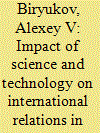

|
|
|
| 2 |
ID:
163628
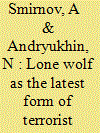

|
|
|
| 3 |
ID:
167111
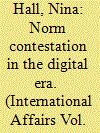

|
|
|
|
|
| Summary/Abstract |
Activists in the internet era are taking action through online petitions, twitter storms and by forming new digital advocacy organizations such as Campact, 38 Degrees and GetUp!. However, no International Relations (IR) scholarship has systematically examined the role of digital advocacy organizations in norm contestation. Digital advocacy organizations warrant study given their international reach, their large memberships, their longevity, their frequent campaigning activity and their claimed impact. This article focuses on the responses of three digital advocacy organizations in Australia, the UK and Ireland to the same external crisis: an increasing number of refugees worldwide. It asks: when and why did these organizations engage in behavioural norm contestation during the refugee crisis? Their use of behavioural contestation is a puzzle, given that digital advocacy organizations have low implementation power. The article draws on interviews with activists and experts, and finds that advocacy groups firstly use discursive contestation (debating the meaning and importance of norms), and then may engage in behavioural contestation (influencing the implementation of norms). Discursive contestation is less costly, and perceived to be less effective, than behavioural contestation. The article suggests that digital advocacy organizations can mobilize people online and offline, and IR scholars should examine this important source of power. This article forms part of the special section of the May 2019 issue of International Affairs on ‘The dynamics of dissent’, guest-edited by Anette Stimmer and Lea Wisken.
|
|
|
|
|
|
|
|
|
|
|
|
|
|
|
|
| 4 |
ID:
126311
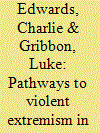

|
|
|
|
|
| Publication |
2013.
|
| Summary/Abstract |
The Internet is often singled out as the key means through which extremists and terrorists are radicalised. Yet, argue Charlie Edwards and Luke Gribbon, research thus far has fallen short of unearthing the actual mechanisms through which this radicalisation takes place. Using examples from a wider study, they explore different ways in which individuals have used the Internet in their processes of radicalisation and point out that policy-makers and researchers need to focus their efforts on understanding not merely the content that is available online, but the ways in which this content is used in the process of radicalisation.
|
|
|
|
|
|
|
|
|
|
|
|
|
|
|
|
| 5 |
ID:
109549
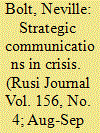

|
|
|
| 6 |
ID:
151768


|
|
|
|
|
| Summary/Abstract |
The digital era has placed most of humanity’s knowledge within a few clicks of a computer mouse or the touches of a smart phone screen. Yet in an age where knowledge is so readily available it is also seemingly elusive. Reality hides behind oceans of information streamed from innumerable sources competing for a single moment of attention. But disinformation dangerously poisons that abundance of knowledge and begins a process of ideational inception, in which even the idea of reality is itself subverted.
|
|
|
|
|
|
|
|
|
|
|
|
|
|
|
|
| 7 |
ID:
151782
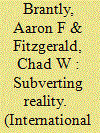

|
|
|
|
|
| Summary/Abstract |
The digital era has placed most of humanity’s knowledge within a few clicks of a computer mouse or the touches of a smart phone screen. Yet in an age where knowledge is so readily available it is also seemingly elusive. Reality hides behind oceans of information streamed from innumerable sources competing for a single moment of attention. But disinformation dangerously poisons that abundance of knowledge and begins a process of ideational inception, in which even the idea of reality is itself subverted.
|
|
|
|
|
|
|
|
|
|
|
|
|
|
|
|